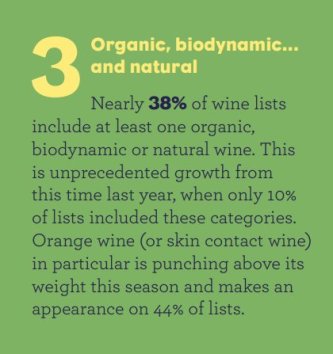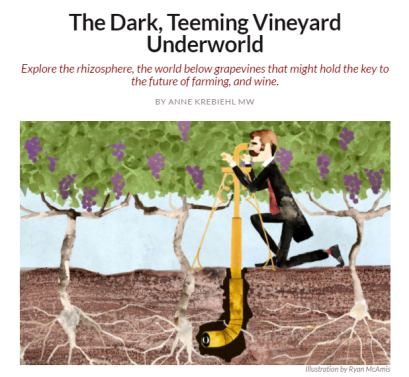I may be away from the action of the Coutelou vineyards but my fascination with wine, and particularly natural wine, continues to grow. I have recently read two things which I thought were worth sharing on here.
Firstly from Bibendum came this piece of information about the UK.

This growth of interest in natural wines is, of course, very pleasing to me, a long time advocate of the style. Not all these wines are natural but the interest in this sector shows a shift in demand and, also, realisation from merchants that the demand is there.
Caveat emptor! Not all wines labelled as ‘natural’ are that, a consequence of the lack of regulation. In particular beware high street retailers with wines from big companies. Artisans who practice natural methods in the vineyard and cellar are what matter to me. To identify such producers you could do worse than look at the website ‘vinsnaturels’ which is in French and English. The app Raisin is another useful way to locate producers and retailers.

The most interesting article I have read though was from The Wine Enthusiast, written by Anne Krebiehl MW. In it she describes what we are learning about soils and the life which is in there. The rhizosphere is the soil immediately surrounding the vine roots and research is revealing the microbial and fungal life in there. This is something which Jeff has described to me over the years and it is fascinating to look at soils with small white fungal fibres which form a network around the vines, supporting them with nutrition and chemicals whilst benefiting themselves from the vines in a symbiotic relationship. Encouraging life in the soils is, therefore, hugely important; reducing their compaction from tractors etc as much as possible, composting them, avoiding chemicals where possible.
Mycorrhizae in Rome vineyard
There is much research still to be done and we are in the early days of understanding how the soils influence the vine and, consequently, the wine. However, early research supports the careful management of soils and vines by vignerons such as Jeff Coutelou. Respect the environment, encourage life. As he said after the recent damage done to his vineyards the best response is to plant. Trees, bushes, flowers, any plants. Encourage ecosystems and they will repay our guardianship.



November 29, 2017 at 6:04 pm
Good point, caveat emptor. It’s called a bandwagon. Many who scoffed at “natural wine” two or three years ago, always preceding it with “fad” or “fashion”, are now trying to get a piece of the commercial action.
I’m not sure regulation will ever be the answer as the most creative and conscientious producers are often those least likely to bow to the often lax regulations which are sometimes created for maximum inclusion (and thereby, revenue).
The problem is that if we therefore need special knowledge to know what is good and what is a little bit fake, then we become no less a clique of gatekeepers and guardians of the flame as those who write about the classics. Exclusivity is something we need to avoid.
Yet if you are vegan you need to read every label carefully. Likewise, if you care enough about what you drink, a little time devoted to finding out what you are really drinking is not too much to expect.
As for soil health, the differences between chemically farmed soils and those that see no synthetic applications (and even more so, those not compacted by tractors) are some of the most palpable and demonstrable reasons why such synthetic treatments in the long run do so much harm.
LikeLiked by 1 person
November 29, 2017 at 6:31 pm
You won;t be surprised to learn that I agree with you all the way. I sometimes think regulation such as some are attempting would benefit consumers etc but not yet convinced enough. My first rule of thumb is to exclude any pf the big producers (even if they mean well) such as Bertrand and Mas in the Languedoc. Then I’d want to know about organic status etc. Some research is required. Reading wideworldofwine or here would be a good start 🙂
The spongy soils of Jeff are one of his greatest achievements with air and organic matter making them alive. It is a topic which increasingly fascinates me.
LikeLike
November 29, 2017 at 6:48 pm
Wonder which restaurants they looked at to get those wine list stats? They were in “that London”. The vast majority of places round where I leave would not have a clue what you were talking about if you asked for an orange, biodynamic or natural wine. Still, it is encouraging that the numbers are going up I suppose, especially if it means they are generally taking wine more seriously.
LikeLiked by 1 person
November 29, 2017 at 8:33 pm
Valid points Steve, the situation is the same here in the NE, indeed one of the two Michelin restaurants told me the area is not ready for such wines!!
LikeLike